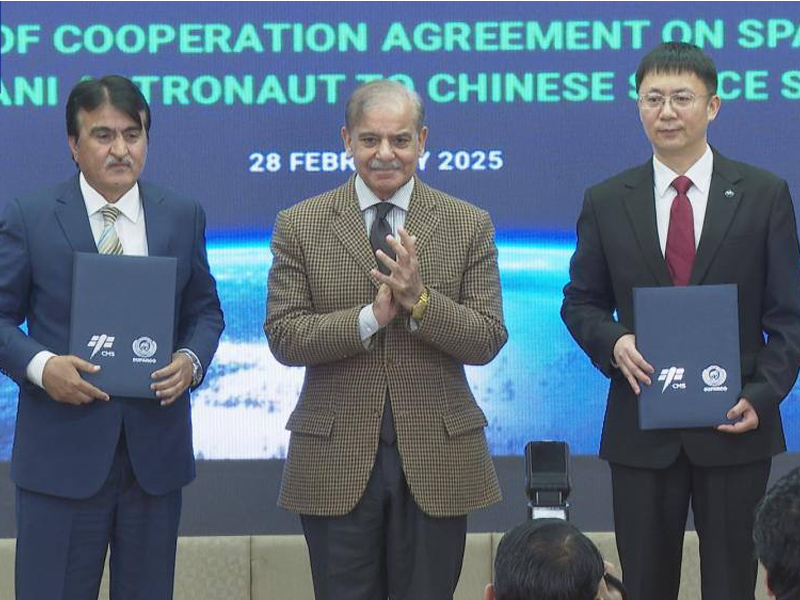
China and Pakistan have signed a landmark agreement, making Pakistan the first foreign partner to send an astronaut to the Chinese Space Station. This move marks a shift towards a more inclusive and collaborative global space era, challenging the West’s dominance in human spaceflight. With China leading an open space alliance, the question remains—**who will join next?
China and Pakistan have just elevated their decades-long partnership to the next level — literally. Pakistan being the first foreign partner to send an astronaut to the Chinese Space Station, on February 28, the two sides signed a landmark agreement on astronaut selection and training. The agreement was signed in Islamabad by Lin Xiqiang, Deputy Director of the China Manned Space Agency, and Muhammad Yousuf Khan, Chairman of Pakistan’s Space and Upper Atmosphere Research Commission, and witnessed by Pakistani Prime Minister Shehbaz Sharif. This historic decision is likely not just to bolster China’s status as a global leader in space exploration, but also represents a turn toward a more inclusive and internationally collaborative chapter of Tiangong, China’s space station.
For years, human spaceflight has been a realm dominated by the West, with the United States crafting the International Space Station (ISS) and deliberately excluding China from it. But it broke through all barriers and built its own independent space station, welcoming partners from the world. Pakistan, one of China’s closest strategic allies, has long worked together on space technology, including launching Pakistan’s first communication satellite in 2011, with China’s help. In this framework, as Pakistani astronauts are slated to fly to the Chinese Space Station, this partnership represents a new chapter in the evolution of (space) diplomacy, a testament to a world in which access to space will no longer be the purview of a limited number of nations.
As part of the arrangement, China will choose and train Pakistani astronauts in the coming year to prepare them for joint missions on Tiangong. This is more than a technical accomplishment, it is an affront to the claim of Western-led space programs to exclusivity and a new model of global space cooperation. As the United States continues to feel its way toward making space an international commons, China is forging a global space alliance—one that can rethink the future of human space activities. As the cosmos of China continues to grow, who will be next?

